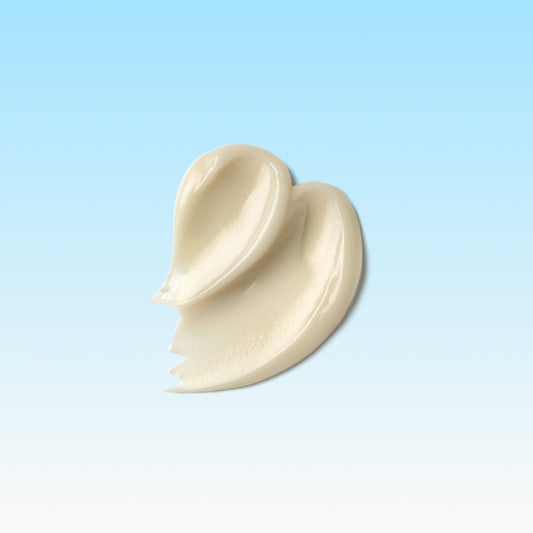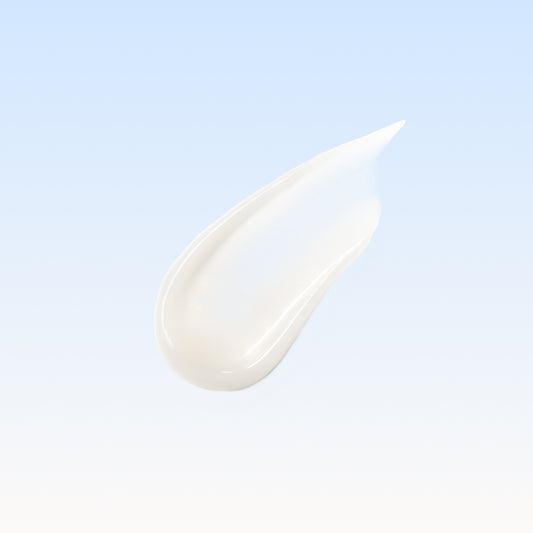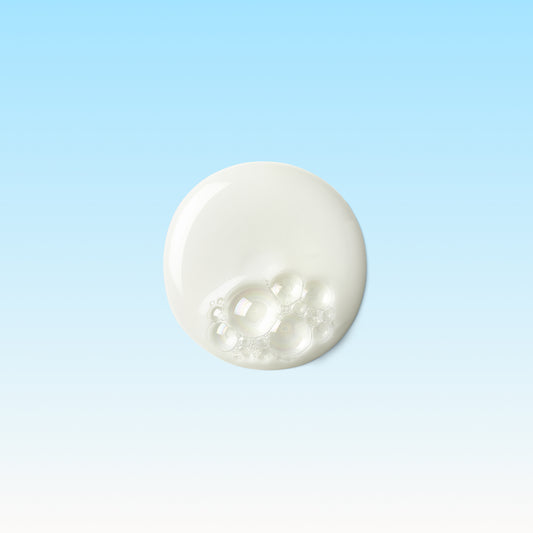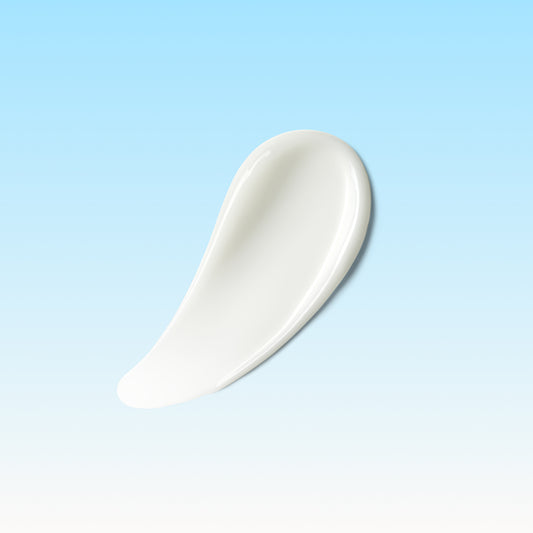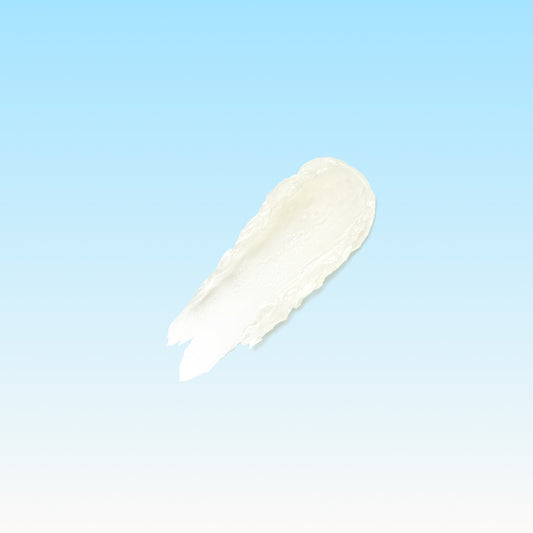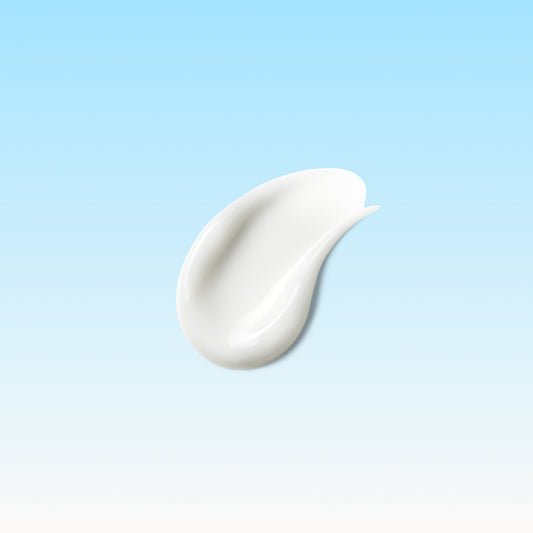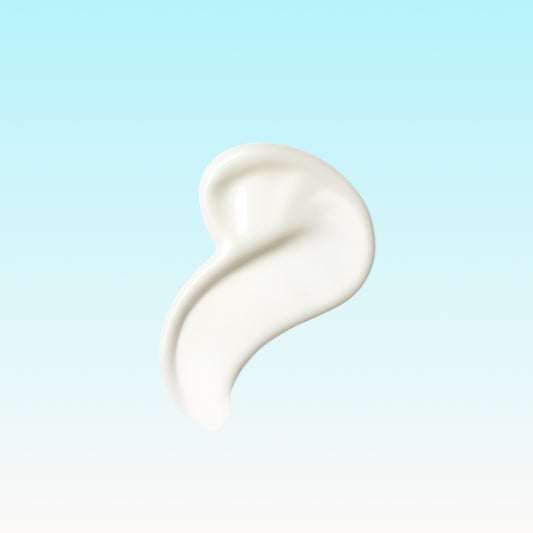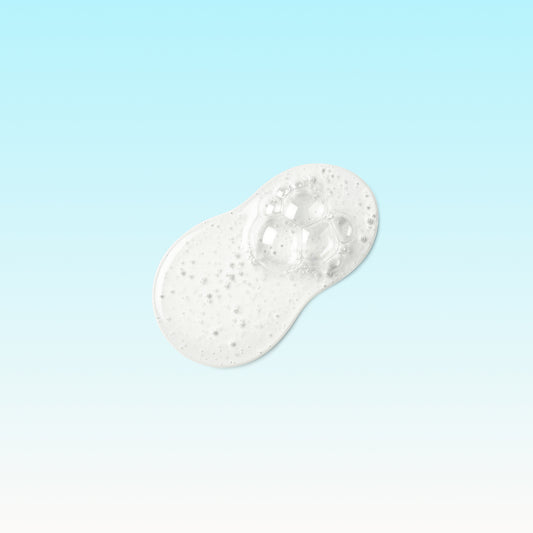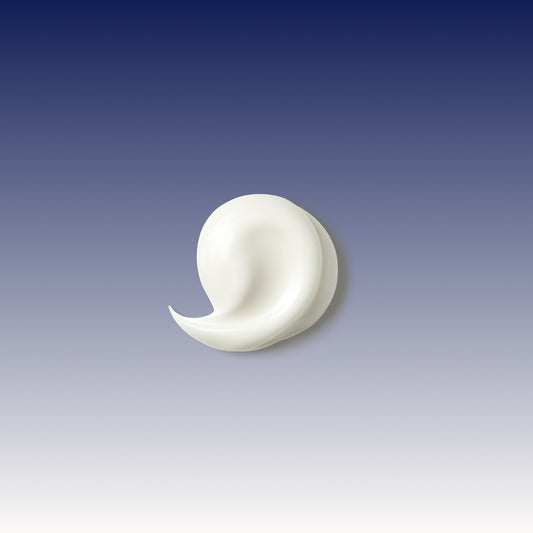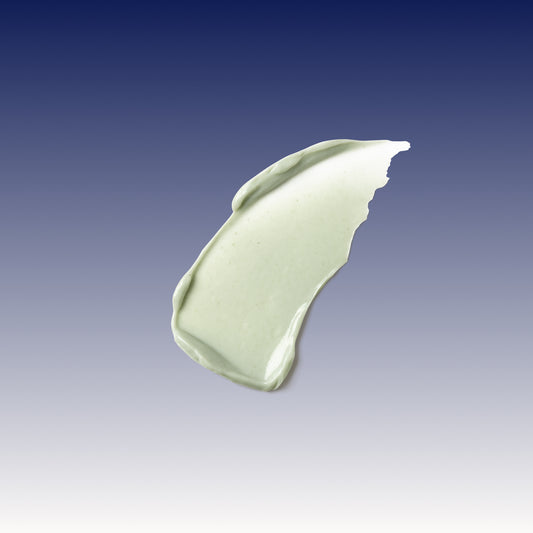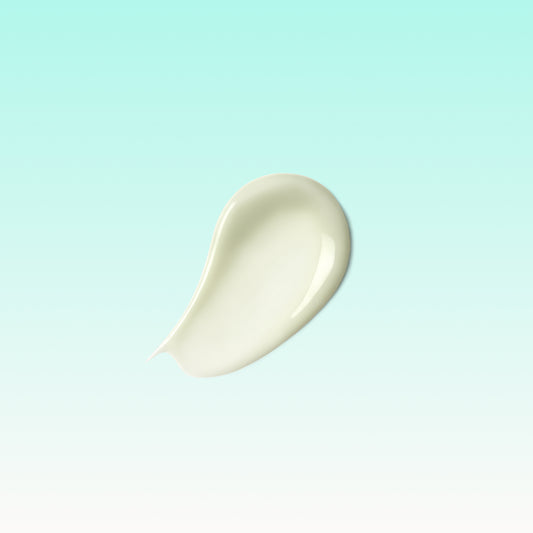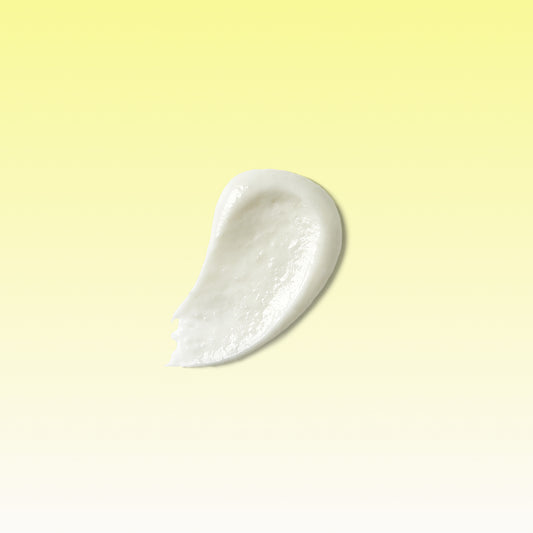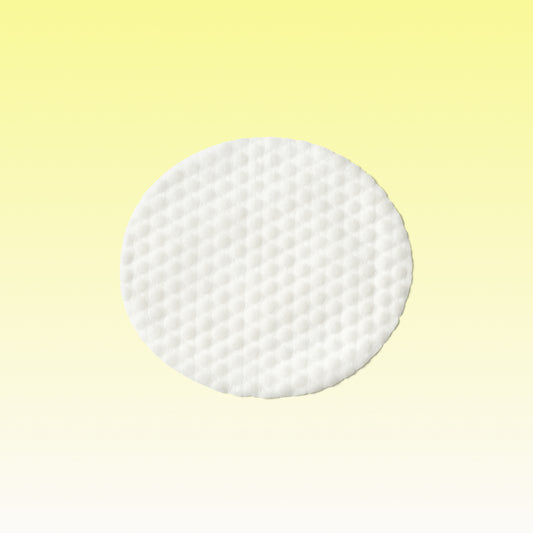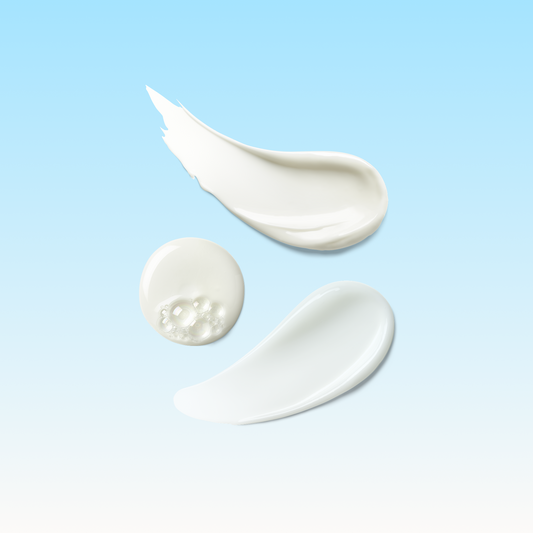S1:E5 Functional Medicine Meets Skin Care with Dr. Will Cole
[Amy Risley] Total Skin Nerds is brought to you by Skinfix. We're clean, clinically-active, and on a mission to help heal your skin.
Welcome to Total Skin Nerds. I'm Amy Risley, the CEO of Skinfix and a first rate skin nerd myself. On this episode, my guest is Dr. Will Cole, one of the leading and most fascinating functional medicine experts in the world. Based in Pittsburgh, Dr. Cole helps people from all over the world, investigating underlying factors of chronic disease and working on issues related to the thyroid, the brain, the digestive system, and more. Functional medicine can also play a big role in addressing skin issues. And I wanted to tap into Dr. Cole's vast body of knowledge to learn how he treats conditions like eczema, rosacea, and psoriasis, and how functional medicine can help heal the skin barrier. Stay tuned now as Dr. Cole talks about what your skin signals about overall health, the link between your gut and your complexion, how to use food and nutrition as medicine for your skin, and so much more. Stick with me, nerds. Don't go away.
[Amy Risley] Dr. Will Cole, so super excited to have you on the Total Skin Nerds Podcast today. I am a big follower of yours on Goopfellas. I have your book, The Inflammation Spectrum, and also the Ketotarian Diet, and big fan of what you're doing and just really happy you here.
[Dr. Will Cole] My goodness, thank you so much for the kind words, and I'm excited to be on your podcast.
[Amy Risley] Thank you so much. So you are a functional medical practitioner, which means you use a combination of food and supplements and lifestyle modifications to really help treat disease and treat all sorts of conditions that plague our health. One of the things that really made me sit up straight in my chair was, you mentioned in your book, that 60% of Americans have a chronic disease and 40% of us have two or more chronic diseases, which was really a frightening statistic. So how much of this in your mind, Dr. Cole, is attributed to inflammation. And how did we get here? How did this happen?
[Dr. Will Cole] Yeah, it is sobering statistics, right? And the book kind of starts out with a lot of context to where we are at as a society, because many people know it to some degree. It's some sort of abstract idea that, yeah, chronic diseases, like autoimmune conditions and diabetes, heart disease, cancer, people are aware that these numbers are quite high, because it's hard to find someone not knowing somebody being impacted by these issues or going through that themselves. So to see it all laid out, as far as the stats are concerned is quite sobering, but the book, hopefully, as you know because you've read the book, it's it is hopeful. And there's a lot of things that we do wield in our life that influence our biochemistry for the positive, because these are largely overcomable, improvable, supportable, healable, reversible things.
So that's the dichotomy of the time that we live in. These are not ravaging plagues in the sense of that are taking people out overnight, but they are chronic plagues, that are taking out society out very slowly. And in some ways quickly in certain instances, like certain cancers. But yeah, the inflammation is the commonality between all of these health problems. So the book is an exploration of how this chronic inflammation problem that's going on in our world today, how is it man manifesting in different ways in different people. But inflammation is not inherently a bad thing. It is a product of our immune system. So balance inflammation is quite important to fight viruses and fight bacteria and heal wounds. It's really an essential part of human health.
It's inflammation thrown out of balance that's the problem. Chronic inflammation is this forest fire that burning in perpetuity. That is the issue. It's a lack of homeostasis. It's a breaking of the Goldilocks principle, not too high, not too low, but just right. So we need inflammation when we need it to fight something off, but we need it to calm down. The problem is people have inflammation too high for too long, and that is this connection. Researchers now know that things, like cancer and heart disease and diabetes and autoimmune conditions to mental health issues, like anxiety and depression and fatigue and brain fog and ADD and ADHD and autism... You see all these numbers rising. You can't have a conversation about mental health without talking about inflammation, but we like to separate, in the West, mental health from physical health.
But in reality, mental health is not separate from physical health. Mental health is physical health and many people aren't having that full conversation. They just say, "Well, mental health problems, mental health, and you just need your mental health care." What does that really mean? Really? If you're really getting to the root cause of majority mental health problems in the West, it's an inflammatory problem. It's a physiological problem. That is what's driving anxiety and depression and fatigue in so many people. But that's not the only inflammatory problem that's rising. It's rising just like all the other problems that are inflammatory.
So the word that I'm using here is commonality. It's important to differentiate that from true causation. Yes, it's a commonality; it's a link. But we have to ask the question, what's driving the inflammation itself too? So that's the other part of the exploration that I'm having in the book is, yes, inflammation is interconnectedness. It's what bonds these different health problems, this common link. But it's not truly the upstream core root component, because something's disturbing the immune system to cause that imbalanced inflammation in the first place. But with that said, inflammation in one area can throw off inflammation in the other areas or cause disruption of balance in the other parts of the area. So for example, inflammation in the gut can cause a cascade of problems in the brain. So it's a big vicious cycle, while it is in effect, it can also cause other problems, because the body's interconnected. So yeah, that's the connection with inflammation and all these health issues.
[Amy Risley] It's interesting. And I mean, we could talk for an entire day, I imagine, on the connection with mental wellness and inflammation. And it's a huge passion project for Skinfix, because our cause that we donate money to is mental wellness, because there's a huge connection between skin issues and people's self-confidence and levels of anxiety and depression. But-
[Dr. Will Cole] I love that light bulb moment for people, because many people we just are not told this. Growing up, we're not told this. We don't hear this at the doctor's visits. We don't hear it on television. It's this separate thing. When someone's going through anxiety or depression, it's this separate thing. But the idea, I mean you're right, insulin resistance doubles your risk factor for anxiety and depression, because these are hormones. Insulin is a hormone. It's throwing up hormones in the way your body is signaling. So these are true physiological things. It's not just some abstract thing. But then there's mental and emotional components to it as well. Like you said, when someone has acne that's ravaging breakouts in their life, that's going to impact their mental health as well.
So this bidirectional relationship between our thoughts and emotions and our physiology is really fascinating to me, because our physiology, like our gut microbiome, our hormones, inflammation levels, will impact our thoughts and emotions, impact our mental health. But conversely, our thoughts and emotions like through a situational problem, like insecurity with their body or a stressful job or a toxic relationship or social media and all the FOMO-inducing content there, all that stuff will impact their physiology. So our body is so interconnected, but this bidirectional relationship between thoughts and emotions and physiology is definitely something that I wanted to explore in the book.
[Amy Risley] Hmm. Well it's fascinating and so optimistic. That's what I love about it is it's not just laying out the problems. It's actually telling you, not only are these conditions treatable, but they're reversible and some pretty serious stuff too, which I know you and Seamus talk about on the podcast, do things like MS and things like rheumatoid arthritis. Actually being able to reverse that and treat that is really optimistic and awesome. Obviously, I have a skin care company and so I wanted to really dive into some of the issues related to skin with you, because I think there are so many things we can be doing to treat some serious skin disease with food. And I want to raise awareness for that, because I'm a huge believer in it.
You talk about throughout the book, you mention skin on multiple, multiple pages of the inflammation spectrum. And it's one of the sort of barometers of whether or not somebody's reacting to food, when you're doing your elimination protocol. And so I wanted to really dive into how is the skin and your mind linked to inflammation. And is there a physiological change in the skin when someone eats something that causes inflammation?
[Dr. Will Cole] Hmm. Yeah. So our skin in many ways is, like you said, a barometer or a check-engine light. If a check engine light comes on in the car, you know something's not right underneath that proverbial hood. So that's how I see the skin. And in some ways, there, and there's studies to show this, is that the skin in many ways, for many people, is really the outer representation of the gut lining. So almost think of if this is a mirror image, my face, my skin is a mirror image of what my gut lining looks like. And in many ways, that is true. Researchers connect it through what's known as the gut-skin access. It's what goes on in the gut impacts the skin. What's the root cause of that in the gut is the ripple effect is manifesting on the skin.
And of course, there's exceptions to that. It's not always just the gut. But it is for many people, a major component, if not the totality of it. But for many people, it's at least a component of it. It doesn't mean it's the only entirety of their puzzle, but it's a piece of the puzzle. So yeah, it is definitely something that I've seen many, many, many times, because my day job is... We have the podcast, super exciting, right? The book's super exciting. But all that stuff is a ripple effect of my day job of consulting patients and looking at labs and really seeing the connection of this. So my days are spent via webcam, like we're talking right now, consulting people in different states and countries and looking at these skin issues or different inflammatory problems.
But skin issues is definitely one of the top patient base that I see, because it's so common, absolutely. So rosacea, eczema, acne, psoriasis, these are all inflammatory problems that I would put, for many people, especially psoriasis and eczema and different autoimmune-type rashes, let's call them that, are some are on this autoimmune-inflammation spectrum. And if they're not autoimmune in nature, they're without a doubt inflammatory. Just to be clear there, because you could have autoimmune conditions... All autoimmune conditions are inflammatory, but not all inflammatory problems are autoimmune, meaning not all inflammatory problems mean the immune systems actually turning against certain parts of the body and attacking it. But without a doubt, many skin problems have autoimmune components to them.
So many times we'll find, if not it's the overwhelming majority of cases, we find gut components to these people's skin problems. So you have to go upstream to them. And of course there is two sides of that coin. The topical support, the topical regime that somebody is doing is definitely important to heal, to promote a healthy skin barrier to downregulate topical inflammation. And your skin is our largest organ, so what we put on our skin is largely absorbed. So in many ways I see topicals as medicine in and of itself to really calm and soothe inflammation both locally and systemically. But conversely, you have to deal with the inside too, and from the inside out. So every food we eat either feeds inflammation or fights it.
[Amy Risley] So I resolved my own eczema by going off gluten and dairy, so I tell people that all the time, although I sell eczema products, I'd rather not. In my optimal world, nobody has eczema. And I truly believe in the connection between food and the health of the skin. And so you talk a lot about gluten in the book and you talk about dairy and specifically casein. But then you'd also talked about some really interesting things, like histamine and salicylates. And it was sort of that idea of, okay, you've eliminated these, and it's still not working, let's go a little bit deeper. Can you talk a little bit about... In someone with psoriasis, for instance, because that's one of the most difficult skin conditions to treat topically, for sure, how would you sort of diagnose someone? And how would you sort of start the process of elimination? And how would you kind of come to resolution?
[Dr. Will Cole] I think that's one of the reasons why I wrote the book was for people to have agency over their wellness, because a lot of this stuff, while it's steeped to in functional medicine principles and sort of the science behind it all, a lot of this stuff, at least out of the gate, there are many people that don't have a functional medicine doctor, that aren't looking for one, but they want to start making positive changes in their life. So that's where I think the book's a great resource for that, because the book starts off with a quiz. And the quiz is adapted from questions that I ask patients. I just made it more user-friendly, less doctor-ish, whatever that technical term is.
So you fill out the quiz, and you go through the different se systems of the inflammation spectrum. And from there they'll get their toolbox. And a lot of times people with skin issues will fall under, almost always, some sort of poly-inflammation category, meaning there's inflammation in more than one area. It's probably going to impact the gut. It's going to impact this autoimmune component and probably in a hormonal component for a certain set of them. And it could be a combination. It could be one of those, but more oftentimes it's going to be more than one of those. And then from there they're going to get different things to focus on, so different foods to focus on, different herbs to focus on, different lifestyle practices to focus on, that research shows to be beneficial for that specific area.
But specifically for skin issues, it's focusing on those tool boxes, but it's also leaning into that elimination diet approach, if they aren't doing that already. So if they aren't doing that already, I think it's a great entry point to look at the Core4 track and the Elimin8 track. And for people that don't know Core4 are the four foods that are most likely to cause inflammation in most people. But because of bio-individuality, we're all different. We're all going to have different responses. I'm not saying all these foods have to be avoided for everybody and they're the cause of all the problems. But because research shows them to be the most problematic, it's going to behoove you, that's going through this poly-inflammation, skin-reaction problem, to mitigate those variables, to decrease those variables, to see which one's causing a problem in you and which ones maybe aren't.
So the Core4 are going to be grains, which includes gluten-containing grains and gluten-free grains and then added-sugar, high omega-six oils like canola oil, vegetable oil, and dairy. And I have a nuanced conversation in the book about dairy, the different types of it, and same with grains too. But for the sake of simplicity, that's the Core4. And then the Elimin8 track, which can also impact skin for some people, is going to be the Core4 plus four more, or eight Elimin8. So it's the eight foods that can cause reactions in people. Beyond the Core4, it's adding in nightshades, which are peppers, tomatoes, eggplants, goji berries, white potatoes. That can definitely cause, sorry, skin reactions in people and other sources of inflammation. Next we have nuts and seeds, legumes, and eggs. All of those eight foods, especially the additional four, those are not junk foods, right? They're whole foods from the earth. They're healthy by all stretch of the imagination.
So there's nothing inherently wrong with them, but because of the alkaloids in the nightshades or the lectins in the nuts and seeds in legumes or the albumin in the egg white, just like the casein in the dairy or the gluten, which is technically a type of lectin, in the grain, those can cause reactions. Those food proteins can cause reactions in people's immune systems. Because we're all different, I may do fine. I do fine with eggs, but some may someone may not. It can cause skin reactions. I do great with legumes and beans, but some people are not going-
[Amy Risley] I do not. I definitely do not do legumes.
[Dr. Will Cole] And that's that's bio-individuality, you know?
[Amy Risley] And I love that idea, because, for so long... I mean I'm 50, so I've lived through decades where there was one-size-fits-all in terms of this idea of how you eat. And it's just so wrong. I mean, I have a colleague who went to an ayurvedic practitioner and was put on a mung bean diet, 100% mung beans. She happens to be someone who cannot tolerate legumes. So she felt worse than she's ever felt in her life. She bloated.
[Dr. Will Cole] Yeah, that's a lot of legumes.
[Amy Risley] It was just legumes all the time. It was a legume-orama. And so, it's this idea that I love that you talk about in the book and that you espouse is that tomato is a healthy food. It's nutrient dense. It has antioxidants. But not for a lot of people. It can cause inflammation. This idea that you just mentioned, that it doesn't have to be junk food. It just doesn't have to be the right food for you. And that thing that may be the sort of crux of your eczema or psoriasis may be a food that somebody else can eat healthfully and be fine. And I think that's such an important message too. And I love the idea that you sort of go through the forensics, if you will, to figure out what it is.
[Dr. Will Cole] Mm-hmm (affirmative), totally.
[Amy Risley] In your mind, and I know this is maybe controversial, is everything ultimately treatable if sort of caught at the right moment and treated with the right sort of combination of therapies, whether medical and functional combined? Do you think everything's treatable?
[Dr. Will Cole] I wouldn't go as far as saying everything, but I would say the majority, overwhelming majority. And I would say very severe instances, that would be for all intents and purposes, many people have counted out as there's nothing for you. You just basically have to live with this. And you've tried every medication under the sun, and you haven't seen any improvement even with those. I've seen, over the past 11 years, people completely regain their health. So without a doubt, it's the overwhelming majority of cases. And we're used to very difficult cases. These are not the average. They already know not to eat junk food. They're very well-read, erudite patients that have had to be their own doctors in many ways. I've seen them overcome these health issues.
And if I could see them, I can't think of all the people I don't get to talk to, like all the amount of people that aren't doing what my patients are doing that really have it a lot easier than my patients. If they just stopped eating all these inflammatory foods, and they could change your life. So hopefully the book does that. Hopefully, books like mine do that too, because this information's at our fingertips. That's the awesome time that we live in is that information, as far as the internet is concerned, is so democratized. People have access to the stuff, whereas a generation ago it was like, "No." It was like you had to really, really seek it out. You went to your doctor. Your doctor didn't talk about this at all. Now it's different, and people can listen to podcasts like this and listen to it.
[Amy Risley] And I also love the fact that you're doing group programming as well, for people that might not be able to afford doing a one-on-one with you, that you're doing group programming, just to sort of, as you say, democratize the information. It's amazing, so thank you for doing that.
[Dr. Will Cole] Thank you.
[Amy Risley] One of the things I wanted to talk about is genetics, because a lot of times we hear when I'm in Sephora stores talking about Skinfix and the skin barrier and eczema, people will say, "But it's genetic. My mom had it. My grandmother had it. It's just genetic." And it's sort of this like, "There's nothing I can do." And you talk a lot in the book about how, yes, you may have genetic predispositions, but that you can work on an approach that's supportive of sort of quelling those in a way. Can you talk a bit about that and sort of the fact that genetics is not a predetermined path?
[Dr. Will Cole] Yeah, totally. And that's the other thing too, right. It's quite a new thought for many people. And it's shrinking, I think because people are aware of epigenetics now more than ever, but it's still we have a long way to go raising people's awareness around this. If you look at different studies like, Okinawa study, different studies on twins, like the Danish twin study, you're going to see the overwhelming majority anywhere from between 75 to over 90% of how long somebody's lived, the health that they have, is due to epigenetics. These are lifestyle things that the foods are eating or the foods we're not eating, our stress levels, our sleep, exposure to toxins, gut problems that we talked about, all of these epigenetic things are constantly and dynamically influencing genetic expression.
So the old idea was that this sort of immutable, predestined, genetic code that was unchangeable is really an archaic view of genetics in most cases. The new science, and when I say new, it's not all of it's not super new. We're talking about the last 10, 15, 20 years. Still we're looking epigenetics is that we really can influence a lot of our genetic expression to a large degree. So genetics is very a small percentage of it for most people. And all this epigenetic stuff is either turning on or turning off genetic expression, turning on good genes, turning on bad genes, turning off good genes, turning off bad genes. So that's what epigenetics lifestyles issues are.
So I see all the time, most of my patients are people with autoimmune conditions or some sort of autoimmune reactivity. There's a genetic component to that. So research estimates that for these autoimmune issues, again about a third of that puzzle is genetics, but two-thirds is epigenetics. So that's the lifestyle stuff that can trigger that genetic predisposition for something. But someone can have genes for autoimmune issues, but doesn't mean they're going to have that expression. So for example, we see a lot of... And I have a double SNP to this as well, MTHFR C677T, that's one gene variant that it's a SNP. It's a single nucleotide polymorphism. It's a gene variant. This gene is associated with autoimmune issues. I have autoimmune conditions on both sides of my family, doesn't mean that I'm going to have autoimmune issues myself.
So you have to do what you can to support your immune system, to balance it and not constantly stress out an already stressed-out immune system, one that's more prone to being stressed out. So the analogy that I use is a mug, like a coffee mug. Some people have big mugs; some people have small mugs. That's your genetic tolerance to stressors. Some people can fill it up with tons of stressors all day long. They're eating junk, they're smoking, they're not sleeping well, they're just living a really not-clean life, and they're never going to overflow, because they have massive mugs. But a lot of my patients have smaller mugs, so they're going to overflow easier. You can't change your mug size, but you can change what you put in it. And that's the food, your stress, toxins, all these lifestyle things. So that's how I think of it and explain it.
[Amy Risley] I love that, because, again, it's optimistic, and I'm an eternal optimist. I don't like this idea that you just say, "My dad's type-2 diabetic. I have insulin resistance, so I'm just going to have all the issues associate." No, I'm not. I'm going to tackle it and deal with it. And I can fix it. One of the things I wanted to touch on, which is maybe a little bit more of a vanity metric with respect to what you do, is that you interviewed Dr. Nigma Talib the other day on Goopfellas. I love that interview. She's Canadian, as well. Yay. And we interviewed Dr. Perricone a few weeks ago, and he was sort of the father of this idea that eating an anti-inflammatory diet can give you younger looking skin.
And you guys talked on your podcast about how there is an anti-aging effect to all of this great stuff, which is not obviously the purpose of it, but is an end benefit of it. And if the folks listening could see you, you are a glowing recommendation for this diet. So do you believe that if you figure out what are the foods that work best for you, if you figure out your biochemistry, and you are able to follow an anti-inflammatory diet, that it could have sort of benefits to the skin and give you more glowing radiant, bouncy skin, that in effect gives you of an anti-aging benefit?
[Dr. Will Cole] Oh, certainly. Thank you for the kind words. I didn't know you were Canadian.
[Amy Risley] Well, I live in Canada. I'm actually American, but I'm dual.
[Dr. Will Cole] Okay. Whereabouts?
[Amy Risley] Nova Scotia.
[Dr. Will Cole] Oh, cool. My wife wants to go to that part of Canada, because she likes... What's the book? It's...
[Amy Risley] Oh, Anne of Green Gables?
[Dr. Will Cole] That's what it is. Anne of Green Gables.
[Amy Risley] Prince Edward Island. So come, but only come in July in August, September. But you should come, and we would love to show you around.
[Dr. Will Cole] Oh my goodness. I'll have to tell her. She's going to be so pumped about this. But yeah, if she could live that life, she would totally do it. But we were supposed to go-
[Amy Risley] It's very anti-inflammatory up here.
[Dr. Will Cole] Yes, that's right. Beautiful.
[Amy Risley] It's a very quiet, calm, beautiful life, lots of shellfish. It's good.
[Dr. Will Cole] Awesome. Cool. She'll probably want to walk around with a bonnet or something like that to be a cool kid.
[Amy Risley] We have a bonnet here, actually. We have an antique. Yeah, we do. We're all set.
[Dr. Will Cole] Okay, cool. And so anyways from an anti-aging, Nigma is an amazing doctor, an amazing friend of mine as well. And yeah, she's from Vancouver. So basically without a doubt, is going back to my earlier statement that our skin is this out of representation of what's going on our body that includes supporting suppleness and glowing and radiance and supporting healthy aging. Of course, we're all aging. But the problem with so many people is that they have accelerated aging. They're looking a lot older than they should. So we're not saying aging's a bad thing. But they should be aging health and in context with their actual age in many, many ways.
Let's talk about macronutrients first. So we're talking about healthy fats, like avocados or olives, extra Virgin olive oil, wild-caught fish. These amazing fats help with skin hydration. They also help with providing fat-soluble vitamins, like vitamin A, true retinol in things like wild-caught fish and even grass-fed beef. And these true retinol your body's getting from these fat soluble sources. And vitamin D, vitamin K2 all really needed for healthy skin function. Vitamin A in the plant source is beta-carotene, which is good too. But your body has to convert that to retinol to really be in its bioavailable source. And a lot of people with inflammatory health problems, and people specifically with gut health issues, they're conversion of beta-carotene to retinol is quite low. So to make sure you're getting ample amounts of bioavailable vitamin A retinol, and not just beta-carotene, it's important for using food as medicine for your skin.
And then the healthy fats themselves are great at calming inflammation. Like I said, and hydration, omega fats specifically, and all the micronutrients and polyphenols and antioxidants you're going to get from different variety of vegetables and fruits and things like that, so all great things in that way. And specifically, if you look at macronutrients and what I talk about in Ketotarian, when you have a higher healthy fat, mostly plant-based clean keto, I'm not talking about like a dirty keto diet, but basically a high-healthy fat, moderate protein, low-carbohydrate diet, that does something specifically for your skin too.
In addition to all the healthy fats, the fat-soluble vitamins like retinol you need for your skin, it's also providing your body the state of metabolism that's called nutritional ketosis. I'm not saying you always have to be in ketosis, but at least explore and dip into it to tap into some of these benefits that I'm talking about, like autophagy. It's your cellular recycling, so it's your cellular renewal. Think of it as your anti-aging pathway of your body. Your body can naturally do that in a state of autophagy. Most people have such dampened autophagy pathways, they're not able to tap into that. So ketosis puts you in a little bit of autophagy.
And it does a lot of other things for your mitochondria, which you need for a healthy cellular energy too. It increases mitochondrial biogenesis in ketosis too. And it's an anti-inflammatory state. Beta-hydroxybutyrate down-regulates inflammation, which we talked about is not a good thing for our skin either. So a lot of that cool stuff, that's all nutrition. That's all nutrition stuff that you can really dip into and experiment with. And then different food medicines, like bone broth, of course have collagen and hyaluronic acid and things in that to really support your skin in that way, too.
[Amy Risley] I love to sort of think of it as one plus one equals three, that certainly we can use topicals that have those good fats and the lipids that are going to help restore the lipids and hyaluronic acids and the collagens, but you really need to be coming at it from both directions. And topicals can support only so much, but you need to sort of be working in both directions.
[Dr. Will Cole] Yeah.
[Amy Risley] One of the interviews that I listened to with you and Elise Loehnen on Goop, another one of my favorites... I love Elise.
[Dr. Will Cole] So cool.
[Amy Risley] She's amazing. You talked about [Helmann's 00:31:02] therapy, and I thought it was super cool, and especially in this over-sanitized state that we're in right now, which obviously we have to be in. I would never tell people not to sanitize their environments or not to wash their hands. But you specifically talked about how there's less autoimmune disease in the developing world and how we're sort of systematically killing off some of these parasites that we need to have in our world in order to stay in balance. And so I just wanted you to talk a little bit about this Helmann's therapy idea. And maybe even in the context of our over-sanitized world right now, what could we do? Obviously can inject ourselves with parasites, but what could we do to sort of balance out this over-sanitization and keep our microbiomes as sort of safe as possible?
[Dr. Will Cole] Yeah. And I think you're right. We live in an interesting time right now, where people are sanitizing and that's the advice. And it's really, probably not the time to be talking specifically about what over-sanitization looks like. I do think it's a problem. And I do think it comes with a price tag for people to be over-sanitizing. And for this overly fearful... People are afraid of their own hands right now. It's definitely, in my opinion, going to be a component to problems down the line. But you have to weigh what's the pros and cons at this point. I think sometimes in certain instances important to be overly due diligent with things for a time. But ultimately when you're looking at the context of modern human history, that's what I'm talking about, is that the over-sanitization of everything under the sun is creating resistant bugs and causing the immune system that co-evolved with these microbes to really be living in a brave new world, where this mismatch, this evolutionary mismatch between genetics and epigenetics, is really at the heart of a lot of what researchers are looking at.
This is not just some functional medicine practitioner's opinion. If you look at the research on PubMed and what they're looking at, at what is the major or what is at least a component to what's triggering autoimmune conditions like never before in human history, that is this evolutionary mismatch. And we live where we have great advancements of modernity, and sanitation is great, but it's that balance that we've lost and this over-sensation and over-sterilization of so many things, and soil depletion, as far as our foods supply's concerned. That's caused a real disruption of the microbiome, not just the microbiome in our gut, which is certainly a major part of it, but even the microbiome on our skin, which there's a skin microbiome as well. And that's another component to these inflammatory problems of the skin and systemically, as far as autoimmune conditions are concerned, because your gut is 75% of your immune system. So when you're dealing with autoimmune issues or inflammatory problems, which is then a product of the immune system, you have to look at where the predominance of the immune system resides, which is in your gut.
So yeah, helminthic therapy... Helmins is a Greek word that means worm. It sounds much nicer when you say helmins, but it's worm therapy in English. But basically, it's these non-pathogenic, beneficial, symbiotic helmins, or worms, that mimic things that humans would've had for a long time, but are losing that diversity of the microbiome. Because these are non-human parasites, they cannot live to adulthood. They are not negative in any way. They're not going to cause infestation. Don't even think of that, because they can't do that. So it's part of the microbiome, and humans would've, again, co-evolved with things like helmins for a long time. And the decimation of the microbiome is one component that researchers are looking at is what's triggering this autoimmune storm that we see in the world today.
So helmins, they're microscopic, but they're in a little chaser basically, and you throw it back-
[Amy Risley] A worm chaser.
[Dr. Will Cole] A worm chaser. The mechanism is really writing. And I wrote about this on Goop and at drwillcole.com. But the research is really cool of how it up-regulates T-regulatory cells. T-regs or T-regulatory cells are needed for the balancing of our immune system. So when you lose that immune balance, that's when you see hyper-inflammation and the immune system to lose its sense of self and sort of mistakes the thyroid or mistakes the skin or mistakes the brain as a pathogen and starts attacking it, because there's a lack of recognition of self. And T-regulatory cells help to maintain and kind open the eyes of the immune system and say, "No, you're actually destroying yourself," and prevent that hyper-inflammatory response.
So you don't always have to take helmins. So the goal of it is to take it to a certain degree where it's the immune system's modulated in a way where you see decreased severity, decreased frequency of your symptoms, and then wean yourself off of that. Obviously, this is not for everybody. Not everybody needs helmins, so it should be done with a doctor and if it's clinically appropriate. But yeah, that is a tool that people can experiment with.
[Amy Risley] It's pretty cool. And I mean, are there things that we can do just day to day? If we're using Clorox wipes and we're constantly using hand sanitizer, are there any counterbalances to that in your opinion? I know when we take antibiotics, we're supposed to take probiotics. Are there things we can do in our external world to introduce back good pathogens or bacteria or?
[Dr. Will Cole] Definitely. If you think about it first, I mean even the advice specific to COVID-19 and the coronavirus right now, the way that this virus is, is that just general hand-soap will disrupt the virus and kill it and can be effective. So yes, people are using a lot of antibacterial stuff, and that's their personal decision, and people can make that decision on that. But if you even look at the advice of what the CDC in the United States at least, and what other people are saying, is just general hand-soap, because of the actual cell membrane of this virus, can kill off the virus just with that. So maybe people don't need all the harsh stuff, just if you're a general healthy adult. I mean, obviously immunocompromised people there's different exceptions to what I just said there, but generally healthy adults could maybe get by with just antibacterial stuff, less harsh things in their life.
But even if they use the harsh stuff for a time, because of a pandemic, there are things you can do. So fermented foods is a wonderful thing, whether you're in a pandemic or not in a pandemic. It's a great way to repopulate the microbiome, provide probiotics and prebiotic fiber just to support a healthy microbiome, because the bacteria eat what we eat, so that can help produce more microbes. And these are powerful food medicines. So people have different bacterial colonies and imbalances in the microbiome. Not everybody can take high levels of this. So start off low and slow, because people with SIBO or histamine intolerance or people with IBS, which can be driven by SIBO, need to start off low with this. But things like sauerkraut, things like kimchi, things like coconut kefir or water kefir, kombucha, these are all things to support a healthy microbiome, and a variety of plant foods because the fiber from the plant foods will help your bacteria eat that and produce short-chain fatty acids, like butyrate, which you need for healthy immune system, and other short chain fatty acids.
So those are some things that people can do. Things that calm inflammation are things that are good for the immune system, because inflammation is a product of the immune system. So things that calm and balance the immune system is a good thing overall. Again, if people listen into this conversation in a year from now, and it's different than in the middle of the pandemic, it's still applies. All of this stuff is timeless.
[Amy Risley] You don't want to go to all this effort to take care about everything that you're eating and then put endocrine disruptors and synthetic fragrance and obesogenics on your skin. So I'm assuming you follow a clean skin care regimen, if you follow one at all. Hopefully you use something in the skincare world.
[Dr. Will Cole] I do.
[Amy Risley] So what is your skincare regimen, Dr. Cole?
[Dr. Will Cole] I like this question. This is good. People don't ask me that. We're always talking about the inside stuff, but I am an advocate for clean skincare and the topical stuff as well. It's important too. And for some people, it is a major game changer, where they're dealing with all the internal stuff, but they need the topical stuff to really bring it home and take it to the next level. So I'm sure an advocate of it. I'm in the very blessed position to... I get sent stuff to try, so I sometimes will rotate it based on the things I get sent.
[Amy Risley] Which is fair. I mean, even I try a lot of stuff, because it's fun.
[Dr. Will Cole] It's fun. It's cool. It's fun, and I'm very thankful for that. And so I use a cleanser right now. I'll just tell you what I'm using right now, because it does change. But right now I'm using... Tata Harper sent me this daily cleanser. It has this slight exfoliant, but it's gentle. It's not super much, so it's like this almost like this oily thing. But I don't use water. She told me to just do circular motions and then I rinse it off.
[Amy Risley] I love her stuff. I love Tata. She's a cool human.
[Dr. Will Cole] Super smart. She's Vermont too, basically Canadian.
[Amy Risley] Basically Canadian.
[Dr. Will Cole] And then, I use Barbara Sturm. They sent me the hyaluronic stuff.
[Amy Risley] Yes, yep.
[Dr. Will Cole] And I use the calming serum too, because I've been outside and doing yard work and things like that, so getting some sun. So I use that. And then I love Alitura. I don't know if you know them. He's a friend of mine. His name's Andy. He's in Los Angeles. He has some cool serums as well. And he has this night cream that I use. It has like V-propolis and things like that. So I use that at night. I think that's basically all I do.
[Amy Risley] That's a good regimen, I mean for a dude especially not to be sexist about it, because a lot of dudes use a lot of skincare, but a lot don't. So that's awesome.
[Dr. Will Cole] Yeah. Well, hey, I know I only have one set of this, so...
[Amy Risley] Well, and you keep it looking good. I mean, between the inside and the outside, you look about 12, so for those who are listening. Do whatever Dr. Cole says. We're going to send you some Skinfix. You can play with it too.
[Dr. Will Cole] I love it.
[Amy Risley] We have this cool patented lipid-complex that mimics lipids in the skin barrier to help replenish those lipids. That sounded like an ad. It wasn't intended to, but I'm going to send you some to try. But our product in particular looks at the quantity of lipids in the barrier, because, as you will know, the lipids decreases we age, which causes all sorts of other things, signs of aging, sensitivity. So there's a link. So there are studies that show that there are physiological things that occur in our bodies, inflammation being one of them, that decrease the amount of lipids in the skin. And you talked a about fatty foods that are helpful in the health of the skin. Are there any links specifically to the barrier and the lipids in the barrier that you know of?
[Dr. Will Cole] Well, I would say a few things. When you're focusing on healthy fats internally, and you're ingesting healthy fats that is essential for building a healthy skin barrier. So the foods you eat, without a doubt, in many ways support a healthy skin barrier, healthy fats being one of them, fat soluble vitamins, which are oftentimes in fats. And if they're not in fats in different vegetables, you will make them more active when you are having healthy fats. So for example, a sweet potato has beta-carotene. The body then converts that into retinol. You need healthy fats to make that more bio-available anyways. So think of olive oil with your sweet potato. That's a good-
[Amy Risley] How about a big slab of grass-fed butter?
[Dr. Will Cole] Yeah, there you go, grass-fed butter. You could do ghee, clarified butter, takes the casein out, and you're kind of getting the fats type of vitamins from the actual butter/ghee itself too, in that case. So you're getting the retinol and the beta-carotene, which can be converted into retinol. So that's definitely a great way to support a healthy skin barrier. And then going back to collagen rich foods, or foods that support collagen production. So if you have things like bone broth or things that are high in vitamin C, which is needed for the production of endogenous collagen too, so different vegetables and fruits with vitamin C, like citrus fruit, which is one obviously thing that comes to mind. That will produce ample amounts of collagen, which is needed for healthy skin barrier.
[Amy Risley] Awesome. And can't wait for you and your wife to come up to Nova Scotia. I'm serious when I say you need to let us show you around.
[Dr. Will Cole] I would love that.
[Amy Risley] Thank you so much for your time and for being on this podcast. And it was just super fun, lots of really helpful information that I hope will help a lot of people.
[Dr. Will Cole] Thanks for having me.
[Amy Risley] You can learn more about Dr. Cole's work by visiting his website, www.drwillcole.com. And you can follow him on Instagram @drwillcole.
I learned so much from talking to Dr. Cole. Here are three things I can't stop thinking about. One, I'm fascinated by the concept of the gut-skin access and how what's happening in the gut relates to some of the most common skin disorders. I'll be tracking my diet and my kids' very closely. Two, I've always believed in the idea that food is medicine. And I'm especially interested in how eating fermented foods like kimchi and kombucha can boost overall health. Three, we're obviously thinking about the skin barrier all the time here. And I loved how Dr. Cole spoke about strengthening it through the lens of diet, retinol, healthy fats, collagen. I'm especially excited to develop a new diet for optimal skin barrier health.
Thank you for listening to this episode of Total Skin Nerds. Please come back next time when our guest will be Dr. Nigma Talib. And please subscribe to our show on iTunes and Spotify. Total Skin Nerds is produced by Rob Corso, Casey Kahn and Howie Kahn for FreeTime Media. Our theme music is by John Palmer. Special thanks to Yvette Johnstone, Kathryn Spears, Kara Canning, Ginny Chien, Jane Meredith, and Meghan Collins. And I'm your host Amy Risley. Till next time, nerds.
[Amy Risley] Total Skin Nerds is brought to you by Skinfix. We're clean, clinically active, and on a mission to help heal your skin.
Speaker 4: Total Skin Nerds is a podcast created to educate. It is not a substitute for professional care by a doctor or other qualified medical professional. This podcast is provided on the understanding that it does not constitute medical advice. If you are looking for help with a skin concern, we would encourage you to seek the advice of a board-certified dermatologist, functional medical practitioner, or other qualified healthcare provider. You can find a red registry of board-certified dermatologists in the US at find-a-derm.aad.org and in Canada at dermatology.ca. For a registry of qualified functional medical practitioners, you can visit ifm.org. Thank you so much for joining us on this episode. We hope that enjoy listening to Total Skin Nerds as much as we enjoy making it.

















